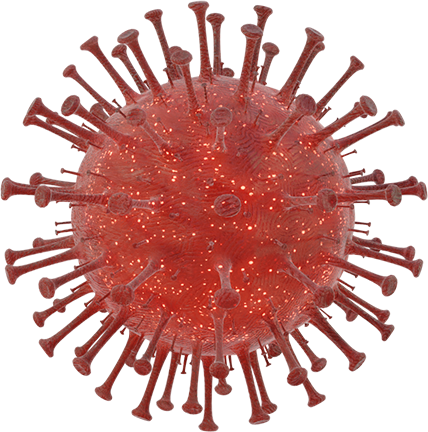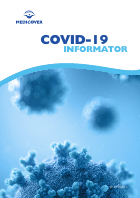



Groups at risk of developing severe symptoms of COVID‑19 include especially the following:
The elderly
Immunocompromised
patients
People with comorbidities
(e.g. cardiovascular diseases, diabetes, chronic respiratory diseases, hypertension, obesity and cancer)
Smokers
It is estimated that smokers are up to 14 times more likely to develop severe symptoms of COVID‑19. This is because the SARS‑CoV‑2 virus attacks the respiratory system and smoking causes damage to the lungs and airways. Smokers can also become infected more easily due to repetitive hand‑to‑mouth movements.
Pregnant women
Available scientific evidence shows that pregnant women with COVID‑19 (symptomatic SARS‑CoV‑2 infection) are at risk of developing severe symptoms compared to their non‑pregnant peers.
Complications of COVID‑19
Infection affects different organs and causes many health problems including the following:
• cardiovascular system – permanent damage to the heart muscle can occur, even in people who have experienced only mild symptoms of COVID‑19; this can increase the risk of heart failure or other cardiac complications, including myocarditis (up to 60% of patients who have had COVID‑19);
• respiratory system – COVID‑19-associated pneumonia can cause long‑term damage to lung tissue (alveoli) and restrictive lung failure, which can lead to persistent breathing problems;
• kidneys ‒ kidney damage;
• skin and hair – rash, hair loss;
• nervous system – even in young people COVID‑19 can cause strokes, seizures and Guillain–Barré syndrome – a condition that causes temporary paralysis. COVID‑19 may also increase the risk of developing Parkinson’s disease and Alzheimer’s disease; smell and taste problems, sleep problems, cognitive disorders such as the so‑called brain fog (e.g. concentration problems, memory problems);
• thromboembolic events, such as pulmonary embolism, heart attack, stroke;
• mental health – people with severe COVID‑19 symptoms need to be treated in a hospital intensive care unit; this experience may increase the likelihood of later developing post‑traumatic stress disorder, depression and anxiety;
• musculoskeletal system – muscle and joint pain, fatigue.
The long-term significance of these effects is not yet known.





